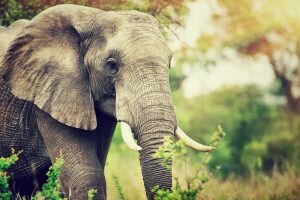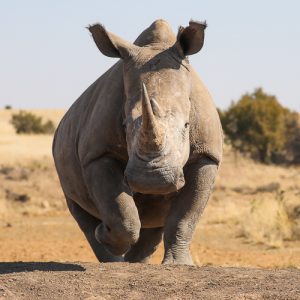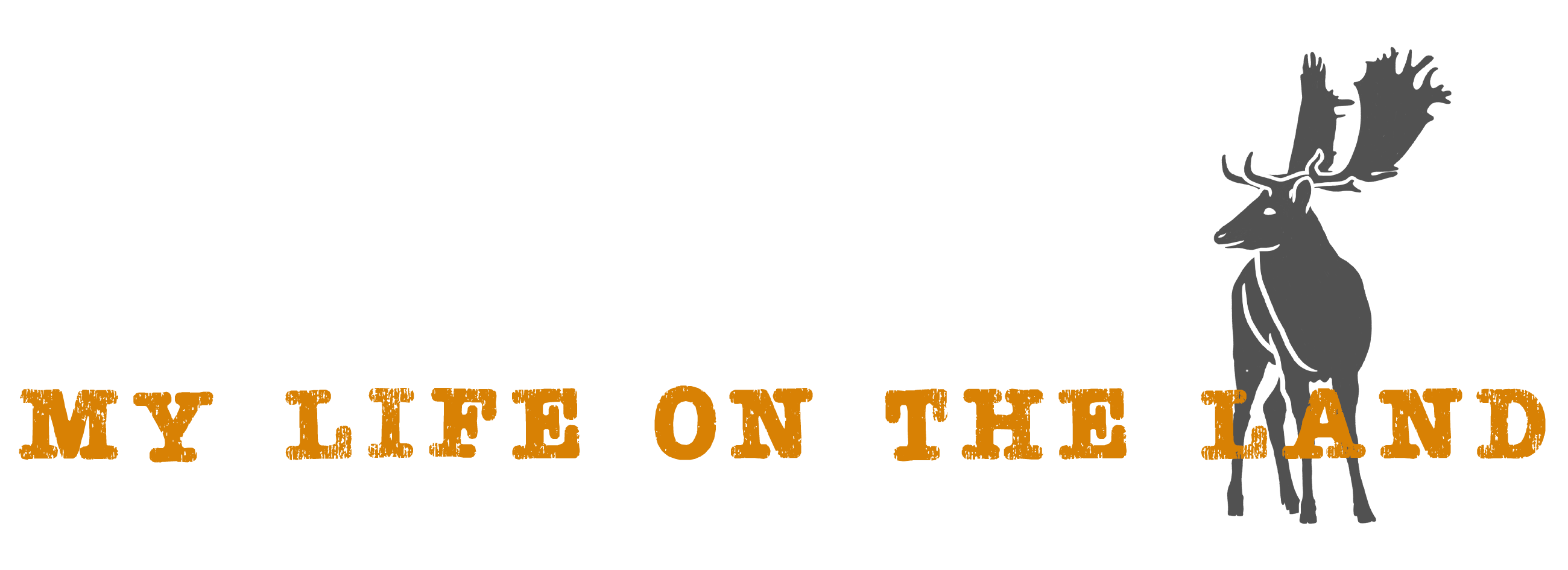
Every social justice warrior on the Internet seems to be calling for a hunting ban these days.
Every few months, there’s yet another wave of public outrage inspired by a photo of a hunter posing with a trophy.
There’s a somewhat reluctant acceptance that meat hunting can be justified but many non-hunters view trophy hunting as evil. They believe the practice should be totally banned.
Trophy hunting takes place all over the world and for a wide range of game species. However, keyboard warriors seem to take particular issue with hunting in Africa.
So what really happens when a country implements a hunting ban? Does the animal kingdom revert back to some Utopian state, free from the violence of humans?
Unfortunately, no. The sad reality is that a hunting ban has proven to have the exact opposite effect, negatively impacting on animal populations and local communities.
Noble intentions, ignorant actions
In 2014, a group called Elephants Without Borders presented evidence that animal populations in Botswana were declining due to hunting, poaching and loss of habitat.
Like the Kenyan government back in 1977, the Botswanian government responded. They banned all trophy hunting.
Most would consider this a success. In fact, I’m sure there was a huge sense of relief and probably even some celebrations from animal advocates around the world.
The plan was to shift the tourism focus from hunting safaris to photographic safaris.

The animals suffered
Before the hunting ban, there was monetary value for local communities in protecting animal populations from the devastation of poaching. In the two decades prior to 2014, Botswana had actually seen a decline in poaching.
Immediately following the ban, poaching incidents started rising again. In an interview with the New York Post, Sankoyo villager, 60-year-old Jimmy Baitsholedi Ntema commented,
Before, when there was hunting, we wanted to protect those animals because we knew we earned something out of them. Now we don’t benefit at all from the animals. The elephants and buffaloes leave after destroying our ploughing fields during the day. Then, at night, the lions come into our kraals.”
Perhaps one of the most damning consequences of the hunting ban has been the increase, not decrease, of some animal populations.
Botswana can sustain approximately 50,000 elephants. Consider the sheer weight of food and water a single elephant consumes on a daily basis. Then imagine the physical damage a fully grown adult elephant can inflict on the environment. All of a sudden, 50,000 elephants seems a significant number.
Since the ban, the number of elephants in Botswana has exploded to a record high of 237,000. Almost five times what the land can cope with. The effect on smaller game animals and local villages is disastrous.

The Botswanian government recently called for an urgent two month consultation to re-evaluate the ban. Just last week, they overturned the ban and have now reintroduced hunting for elephants as a means to control the population.
Julian Blanc of the UN Environment Programme in Nairobi, Kenya, explains the devastation that elephants can bring:
Elephants are not quite the gentle giants that many people in the West perceive them to be. They destroy crops, they kill people, often without provocation – they are one of the top killers of people in Africa. One elephant is enough to destroy a year’s worth of crops for a multitude of families and create a lot of economic hardship.”
The people suffered

Many animal activists fight passionately for the protection of animals. How many of them ever stop to think about the human cost of their actions?
Botswana ranks second on the 2018 Economic Freedom Index of Sub-Saharan countries. However, most of the wealth is concentrated around urban areas and the government.
Prior to the hunting ban, over two thirds of Botswana’s tourism was derived from trophy hunting. Almost 75% of those funds flowed directly to the Botswanian people. Less than 25% left the country. This is a direct contrast to photographic tourism, where only 27% of funds are retained locally. The remaining 73% is paid to international organisations.

Botswana saw a great number of losses both socially and economically, in just six months following the hunting ban.
The villagers in the north of the country lost of over 600 jobs, the meat previously supplied by hunters (often free of charge, or at a very low cost) and more than 40 million Botswanian pulas.
In 2010 alone, Sankoyo village earned $600,000 USD for 120 animals hunted by international hunters. This was an average of $5000 per animal. They lost this income and all of the meat that was previously given to them by the hunters.
The people have lost their main source of income and their primary source of food. They don’t have the luxury of just popping down to the grocery store to replace that food.
What is the answer?
One of the biggest problems with the current conversation around trophy hunting is that it is largely based on emotion and rarely backed up with scientific fact.
Wildlife conservation is a complex issue that requires careful balance and even more careful game management.
Trophy hunting has proved itself as the most effective strategy for conservation. The only way that can change is if those opposed to hunting actually put their money behind their opinions. So far, this hasn’t been the case as evidenced by the failure of photographic safaris.
Real life is not a Disney movie and we cannot expect to use childish emotion and tantrum throwing as a basis for the management of Africa’s wildlife.
What do you think? Is trophy hunting the best way to manage the problem or do you have another solution?
See also

Can hunting aid Kenya’s economy post Covid?
In 1977, Kenya banned trophy hunting and pinned its economic hopes on tourism, believing photographic tourism to be more sustainable in the long run than hunting tourism. Enter 2020 and a global pandemic that hasn’t just impacted the health of millions of people around the world; it has also decimated the tourism industry. Kenyan based conservation scientist Dennis Ombaki believes there should be a place for well regulated hunting to help Kenya rebuild and provide much-needed economic aid to Africa post Covid-19.

How can killing animals save them?
Share on facebook Facebook Share on twitter Twitter Share on linkedin LinkedIn Share on whatsapp WhatsApp Share on email Email
Our other channels
Follow us on Facebook
Follow us on Instagram
YouTube
Subscribe to our YouTube channel.
Get our newsletter
Get our free monthly newsletter direct to your inbox
Listen on iTunes
Listen to our podcast on iTunes.
TV series
Watch I Am Hunter episodes on My Outdoor TV (MOTV)



2 thoughts on “The real cost of a hunting ban”